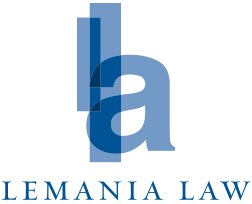Best Arrests & Searches Lawyers in Switzerland
Share your needs with us, get contacted by law firms.
Free. Takes 2 min.
Or refine your search by selecting a city:
List of the best lawyers in Switzerland
About Arrests & Searches Law in Switzerland
In Switzerland, the legal framework governing arrests and searches is primarily derived from the Swiss Federal Constitution and the Swiss Code of Criminal Procedure. These laws are designed to protect personal freedoms while maintaining public order and security. The Swiss legal system emphasizes the necessity of a fair trial, presumption of innocence, and protection against unjust detention and search procedures. Law enforcement officials are required to have a legal basis for arrests and searches, such as reasonable suspicion of criminal activity or a warrant issued by a judicial authority.
Why You May Need a Lawyer
Legal assistance in the field of arrests and searches can be crucial given the complexity and potential consequences of these legal processes. Some common situations where individuals may require legal help include being arrested or detained, having personal property searched by law enforcement, facing charges based on evidence obtained through searches, or feeling that their rights have been violated during an arrest or search. A lawyer can help protect your rights, navigate the legal system, and provide representation during trials or negotiations.
Local Laws Overview
Switzerland's legal system requires adherence to certain procedures during arrests and searches to ensure the protection of human rights:
- Arrests: An arrest can only occur if there is reasonable suspicion of involvement in a crime. The police must inform the arrested person of the reasons for their arrest, and they have the right to contact a lawyer.
- Search Warrants: Searches typically require a warrant issued by a competent judicial authority. In exceptional cases, a warrantless search may occur if there is danger in delay.
- Presumption of Innocence: Individuals are presumed innocent until proven guilty, and any action against the accused must reflect this principle.
- Right to Silence: During interrogation, individuals have the right to remain silent and cannot be forced to incriminate themselves.
- Protection Against Excessive Measures: The law prohibits disproportionate force or invasive search methods unless absolutely necessary for public safety.
Frequently Asked Questions
What happens when I am arrested in Switzerland?
You will be informed of the reasons for your arrest and your rights, including the right to legal representation and the right to remain silent.
Can the police search my house without a warrant?
In most cases, a search warrant is required. Exceptions apply if there is an immediate threat or risk of evidence destruction.
What are my rights during a police search?
You have the right to be present during the search, to ask for a proper warrant, and to receive an inventory of any items seized.
How long can I be detained without charges?
You can be held for up to 24 hours without being charged. After this period, a judicial authority must decide on any further detention.
Can I refuse a search if no warrant is presented?
Yes, unless immediate action is necessary for safety. However, always ensure you are respectful and comply if the situation escalates.
What should I do if I feel my rights have been violated?
Contact a lawyer immediately to discuss possible actions, including filing a complaint against the authorities involved.
Can I choose any lawyer to represent me?
Yes, you are entitled to choose any licensed lawyer you prefer or be provided with a public defender if you cannot afford one.
Is evidence obtained through an illegal search admissible in court?
Generally, illegally obtained evidence is not admissible in court, but exceptions may apply depending on the case.
What is the legal process after an arrest?
After an arrest, the prosecutor will review evidence to decide whether to pursue charges, followed by a court hearing or trial.
Can I appeal against an arrest or search process?
Yes, consult with a lawyer to explore your options for appealing against perceived injustices in arrest or search processes.
Additional Resources
For further assistance, consider contacting the following resources:
- Legal Aid Offices: Provide legal assistance for those who qualify.
- Swiss Bar Association: Can help in finding a specialized lawyer in criminal law.
- Local Ombudsman: Addresses complaints against administrative authorities.
- Cantonal Police Authority: Provides information on procedures and regulations.
Next Steps
If you need legal assistance regarding arrests and searches in Switzerland, consider the following steps:
- Contact a lawyer experienced in criminal law to discuss your situation.
- Gather all relevant documentation and facts related to your case.
- Explore options for legal aid if you cannot afford private legal services.
- Stay informed about your rights and obligations under Swiss law to better navigate any legal challenges.
Lawzana helps you find the best lawyers and law firms in Switzerland through a curated and pre-screened list of qualified legal professionals. Our platform offers rankings and detailed profiles of attorneys and law firms, allowing you to compare based on practice areas, including Arrests & Searches, experience, and client feedback.
Each profile includes a description of the firm's areas of practice, client reviews, team members and partners, year of establishment, spoken languages, office locations, contact information, social media presence, and any published articles or resources. Most firms on our platform speak English and are experienced in both local and international legal matters.
Get a quote from top-rated law firms in Switzerland — quickly, securely, and without unnecessary hassle.
Disclaimer:
The information provided on this page is for general informational purposes only and does not constitute legal advice. While we strive to ensure the accuracy and relevance of the content, legal information may change over time, and interpretations of the law can vary. You should always consult with a qualified legal professional for advice specific to your situation.
We disclaim all liability for actions taken or not taken based on the content of this page. If you believe any information is incorrect or outdated, please contact us, and we will review and update it where appropriate.
Browse arrests & searches law firms by city in Switzerland
Refine your search by selecting a city.

















